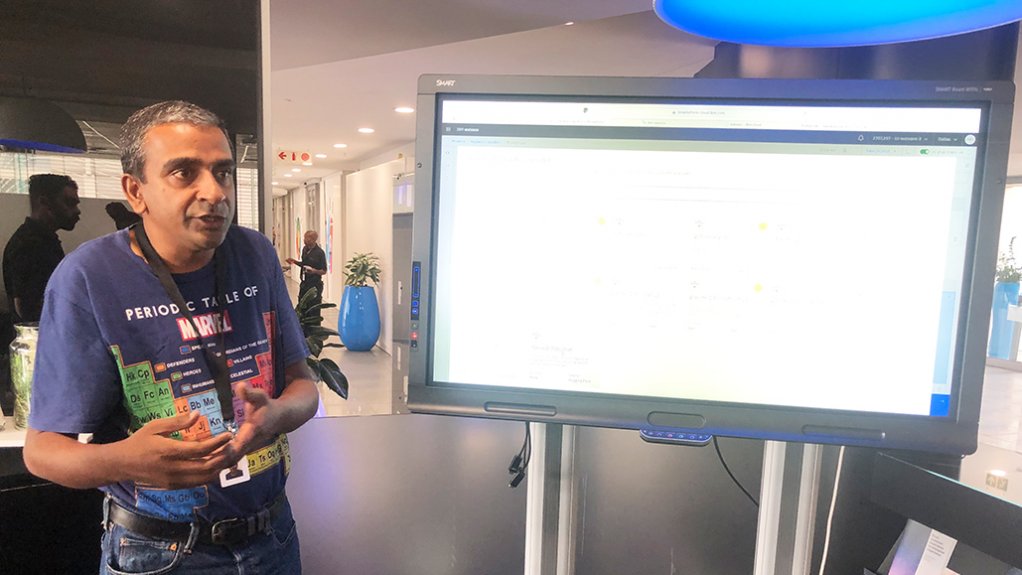IBM investing in AI training to address technology skills gap
To address the impending skills shortage in the artificial intelligence (AI) and automation space, technology company IBM has launched initiatives to train two-million learners globally, focusing on underrepresented communities, in AI over the next three years.
This follows on the back of research from IBM’s Institute for Business Value (IBV), which has found that executives estimate about 40% of their workforce will need to reskill over the next three years owing to the rise of AI and automation.
The upskilling programme will be achieved by collaborating with key university partners to deliver AI training and generative AI coursework through IBM SkillsBuild, which offers access to AI education and in-demand technical roles.
Speaking at IBM South Africa’s headquarters, in Johannesburg, on February 29, technical community leader Satish Babu said the growing demand for automation in various sectors had underscored the pressing need to address the skills gap and equip the local workforce with the requisite capabilities.
“Currently, IBM is working with universities and nonprofit organisations that are involved in upskilling young people and workforce development programmes across South Africa and the rest of Africa,” IBM South Africa country GM and technology leader Ria Pinto told Engineering News.
As such, IBM’s free education programme, IBM SkillsBuild, enables learners globally to benefit from AI education developed by IBM experts. The IBM SkillsBuild courses are designed to build on each other, allowing learners to deepen their understanding as they progress.
The core, entry-level learning plan is focused on AI fundamentals and is comprised of six courses that require about ten hours to complete. It introduces learners to the history of AI and explores the ways that AI makes predictions, understands language and images, and learns using deep learning, neural networks that attempt to simulate the human brain.
IBM has also introduced a new generative AI roadmap that includes new coursework on prompt-writing, getting started with machine learning, improving customer service with AI, and generative AI in action. IBM SkillsBuild also includes coursework on AI ethics. All the courses are designed to be interactive.
Upon course completion, learners earn IBM-branded digital credentials that are recognised by potential employers.
“With the benefits of the fourth industrial revolution becoming more apparent, AI skills are increasingly being considered in Africa, with growing interest and investment in the field. However, the widening talent gap, data challenges, and ethical considerations are hurdles that need to be surmounted for the continent to fully harness the transformative power of AI and drive innovation tailored to its unique needs, objectives, and opportunities."
"Overcoming these roadblocks will require strategic collaborations and initiatives, which is why we are . . . extending AI education to underrepresented countries in a bid to drive more AI adoption and reduce the skills shortage," IBM Middle East and Africa corporate social responsibility leader John Matogo explained.
Pinto added that AI was poised to drive profound transformation across all industries and throughout society.
She noted emerging trends such as the rise of enterprise AI, increased use of open-source AI models, the rapid expansion of application programming interfaces (APIs), and an increased focus on AI safety and ethics.
She said it was critical that South African businesses kept abreast of the latest developments in AI technology to remain competitive and relevant in an increasingly digitalised global economy.
Pinto pointed out that PwC research predicted that AI would have a potential contribution of $15.7-trillion to global gross domestic product by 2030, making it the largest commercial opportunity since the advent of the Internet.
In South Africa, interest in AI has surged, with IBM reporting that numerous large corporations were beginning to recognise the technologies' potential to enhance productivity, improve customer experiences, and drive growth.
IBM South Africa software leader Hein Badenhorst commented that the company was receiving an “overwhelming” number of inquiries about how AI could be used for enhancing business processes.
A recent global study by IBM’s Institute for Business Value found that 75% of CEOs globally believed that their organisation’s competitive advantage would soon depend on who had the most advanced generative AI.
However, Badenhorst said that, while the enthusiasm for AI was evident, local organisations faced numerous barriers to modernisation and to the adoption generative AI.
He pointed out that market and regulatory factors, workforce readiness, the skills gap, as well as ethical and governance concerns were significant challenges standing in the way of AI adoption.
He noted that, for many local organisations, navigating these hurdles could be a daunting exercise, especially for small to medium-sized enterprises (SMEs).
Badenhorst said it was critical that CEOs in Africa establish and implement clear and consistent standards concerning the use of AI across all strategic focus areas. This would determine the level of investment and an organisation's success in the digital economy.
Babu said that the key to using AI successfully lay in understanding what work could be streamlined and augmented through generative AI to deliver greater value, which required that CEOs have in-depth knowledge about the risks and exposures that this technology brought with it.
He added that partnership ecosystems, which included technology and systems integrators, as well as consultants and software vendors, were needed to fill gaps in an organisation's skillset, to develop robust data strategies or guide organisational change to help businesses, particularly SMEs, adopt AI.
However, Badenhorst noted that, as more organisations embraced AI, they would need to prioritise ethics, governance and trust to ensure responsible deployment.
Pinto pointed out that IBM research had shown that investments in AI ethics were rising, growing from 3% of AI spending in 2018 to nearly 9% in 2025.
“Integrating AI in business operations has become a business imperative. AI offers businesses significant benefits . . . but all of these fall away if AI is not implemented responsibly or lacks trust,” Umbono Cloud Services conversational AI and bot evangelist and exclusive expert consultant Pommie Lutchman added.
Last year, IBM released its data and AI integrated platform watsonx.governance to help businesses manage their AI responsibly at enterprise scale and prepare for a broad range of inevitable AI regulation. This platform allows companies to leverage multiple trusted and transparent AI models focused on business use cases.
Article Enquiry
Email Article
Save Article
Feedback
To advertise email advertising@creamermedia.co.za or click here
Comments
Press Office
Announcements
What's On
Subscribe to improve your user experience...
Option 1 (equivalent of R125 a month):
Receive a weekly copy of Creamer Media's Engineering News & Mining Weekly magazine
(print copy for those in South Africa and e-magazine for those outside of South Africa)
Receive daily email newsletters
Access to full search results
Access archive of magazine back copies
Access to Projects in Progress
Access to ONE Research Report of your choice in PDF format
Option 2 (equivalent of R375 a month):
All benefits from Option 1
PLUS
Access to Creamer Media's Research Channel Africa for ALL Research Reports, in PDF format, on various industrial and mining sectors
including Electricity; Water; Energy Transition; Hydrogen; Roads, Rail and Ports; Coal; Gold; Platinum; Battery Metals; etc.
Already a subscriber?
Forgotten your password?
Receive weekly copy of Creamer Media's Engineering News & Mining Weekly magazine (print copy for those in South Africa and e-magazine for those outside of South Africa)
➕
Recieve daily email newsletters
➕
Access to full search results
➕
Access archive of magazine back copies
➕
Access to Projects in Progress
➕
Access to ONE Research Report of your choice in PDF format
RESEARCH CHANNEL AFRICA
R4500 (equivalent of R375 a month)
SUBSCRIBEAll benefits from Option 1
➕
Access to Creamer Media's Research Channel Africa for ALL Research Reports on various industrial and mining sectors, in PDF format, including on:
Electricity
➕
Water
➕
Energy Transition
➕
Hydrogen
➕
Roads, Rail and Ports
➕
Coal
➕
Gold
➕
Platinum
➕
Battery Metals
➕
etc.
Receive all benefits from Option 1 or Option 2 delivered to numerous people at your company
➕
Multiple User names and Passwords for simultaneous log-ins
➕
Intranet integration access to all in your organisation





















